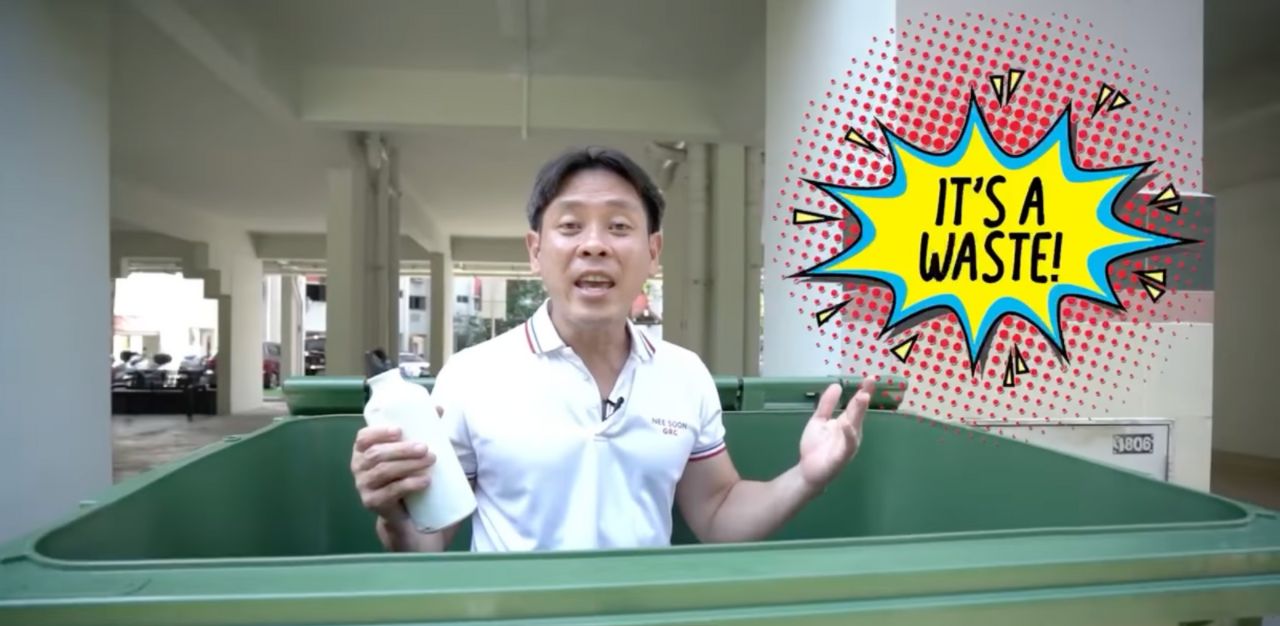Member of Parliament for Nee Soon GRC, Mr Louis Ng, has called for a public consultation on the Good Samaritan Food Donation Bill.
Announced in September 2020, Mr Ng’s Good Samaritans Food Donation Legislation Review Committee aims to help waive the liability for food donors under certain conditions, and provide incentives for F&B establishments to donate wasted food – all while ensuring food safety.
MP Ng shares that the idea came to him while out at a café with his family. “My daughter Ella wanted a piece of cake, and by the time we went back 10 minutes past the buffet time, they had emptied the whole dessert corner into a trash bag in front of me,” he said.
He asked if he could sign off their liability and take the food to donate but the manager shared that they would still be subject to criminal liabilities.
“If you look it up, this is true and quite a serious offence; hawkers can be fined and jailed for donating food that causes food poisoning,” he points out.
Less than a decade ago, Senior Minister of State for Law and Education, Indranee Rajah, said in Parliament that there was no need for a Good Samaritan Law in Singapore, stating that “people continue to help when necessary.”
The times have changed, however. While the goodwill of Singaporeans is not the issue in question, those of food security and global warming are increasingly imminent, and in fact, interlinked.
“As you know, we are big importers of food, and the raw carbon footprint needed to import all this food – some of which goes straight to the landfill – will contribute to climate change,” said MP Ng.
“If we just don’t waste the food we already have in Singapore, we might not have to worry so much about whether there’s enough food to import either.”
Managing liabilities
Nicholas Ng, co-founder of Food Bank Singapore, highlights that this system has been tried and tested in many other countries. “What MP Louis Ng is pushing for is not something revolutionary, it has been happening for 50-60 years in most of Europe and America.”
France, for one, makes it illegal for grocery stores to waste food – everything gets donated. “Americans are famous for suing for anything under the sun, but since they had this law, nobody has successfully sued food donors, and the number of lawsuits filed under this law was much lower than average,” Nicholas said.
That said, MP Ng assures that beneficiaries will still be protected against food safety issues. “If we find out that donors are knowingly donating stale food, this law will not protect them,” he said.
Furthermore, food donation in Singapore goes through multiple rounds of quality checks. “Food safety is our number one priority; if we have any reason to reject food that isn’t safe for consumption, we usually do,” said Den Teo, founder of Food Rescue @ Events (Singapore). “These Standard Operating Procedures (SOPs) will not change even after the passing of the Bill.”
“I think we are just putting our good faith in people, while still reminding our beneficiaries to exercise common sense, and not eat food that smells weird or is mouldy,” said Mr Ng.
Some, especially smallholder food establishments, are also concerned about protecting their businesses – these concerns are usually handled with tact. “When we rescue food, we usually try our best not to give them to needy families who stay nearby, and neither do we include the food company’s name,” said Teo.
Bill drafting process reveals systematic and cultural issues
MP Ng shared that one of the biggest challenges right now is how we legally define food.
“I know it sounds crazy but not all food is the same, and we have to ensure that there are safeguards in place [for different types of food donation],” he said. Bakeries and buffets, for example, don’t stamp what time and date the food was made, so that makes liabilities blurry.
The Good Samaritans Food Donation Legislation Review Committee consists of an elaborate range of stakeholders in the food industry, including hoteliers, supermarket owners, the Restaurant Association, grassroots, and NGOs.
While calling for public feedback, the Committee has simultaneously undergone a series of closed-door consultations, where unique problems are being brought up and addressed.
One was that of a chicken wholesaler who sells his chicken to hawkers on a consignment basis. “A lot of times when the chicken is bruised, chicken rice stores don’t want them. That’s an animal welfare issue,” said MP Ng. “These chickens will not have been frozen and just get thrown away.”
MP Ng and team have since managed to link them up with food charities.
“Ultimately, it is this rampant throwaway culture that we are hoping to address with this bill,” he said.
Give your feedback to the MP Ng’s Committee by 31 August 2021 here.
Join the conversations on TheHomeGround Asia’s Facebook and Instagram, and get the latest updates via Telegram.





























